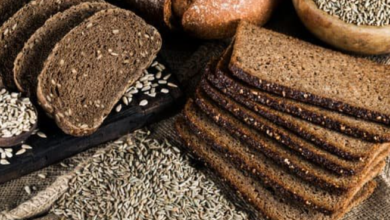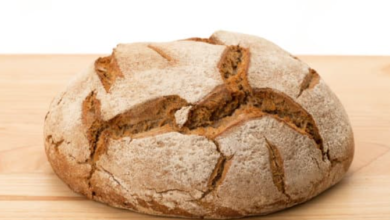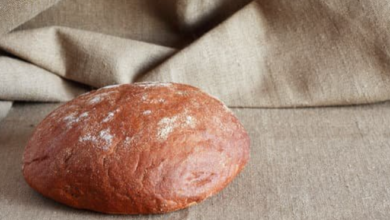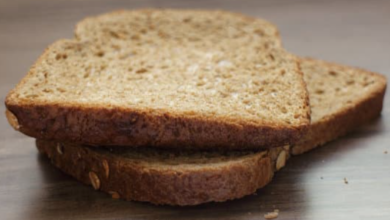Why is rye bread so hard to find? Here’s your answer!
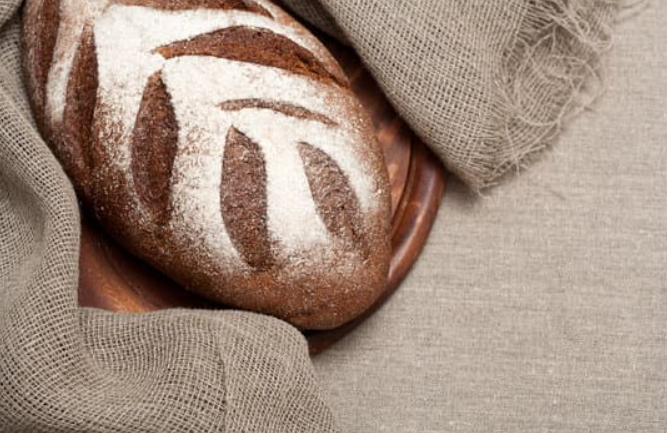
What To Know
- As a result, rye bread often becomes a niche product, produced in smaller quantities by artisanal bakeries or specialty bread shops.
- However, in other regions, it may be difficult to find due to cultural preferences and the lack of local bakeries specializing in rye bread production.
- It is a good source of fiber, vitamins, and minerals, and it has a lower glycemic index than white bread.
Rye bread, renowned for its distinctive flavor and nutritional benefits, often seems like an elusive culinary treasure. Its absence from many supermarket shelves and restaurant menus has left many bread enthusiasts wondering: why is rye bread so hard to find? In this comprehensive exploration, we delve into the factors that contribute to its scarcity, shedding light on this puzzling phenomenon.
The Complex Nature of Rye
Rye, the grain at the heart of rye bread, poses unique challenges for bakers compared to its wheat counterpart. Rye flour lacks the gluten proteins that give wheat dough its elasticity, making it difficult to achieve a consistent rise. Additionally, rye flour contains higher levels of pentosans, a type of sugar that can interfere with gluten formation and result in a sticky, dense texture.
Specialized Baking Techniques
The intricacies of rye bread baking demand specialized techniques and equipment. Bakers must carefully balance the ratio of rye flour to wheat flour to achieve the desired texture and flavor profile. Specific sourdough starters, enzymes, or vital wheat gluten may be employed to enhance the dough’s structure and rise. These techniques and ingredients can be time-consuming and require a level of expertise that not all bakeries possess.
Limited Commercial Production
The challenges associated with rye bread production have led to its limited commercial availability. Many bakeries prioritize the production of more popular wheat-based breads due to their higher demand and ease of production. As a result, rye bread often becomes a niche product, produced in smaller quantities by artisanal bakeries or specialty bread shops.
Market Demand and Consumer Preferences
Consumer preferences also play a role in the scarcity of rye bread. Wheat bread remains the dominant choice in many markets due to its familiarity, versatility, and perceived health benefits. Rye bread, with its distinct flavor and denser texture, may not appeal to all palates. This limited demand further discourages large-scale commercial production.
Regional Variations and Local Availability
The availability of rye bread can vary significantly by region. In areas with a strong tradition of rye bread consumption, such as Eastern Europe and Scandinavia, it is more widely available. However, in other regions, it may be difficult to find due to cultural preferences and the lack of local bakeries specializing in rye bread production.
The Rise of Gluten-Free Diets
The growing popularity of gluten-free diets has further contributed to the decline in rye bread consumption. Rye contains gluten, a protein that some individuals with celiac disease or gluten intolerance must avoid. This has led to an increased demand for gluten-free alternatives, further reducing the market share for rye bread.
Takeaways: The Value of Rye Bread’s Unique Qualities
Despite its scarcity, rye bread remains a culinary treasure worth seeking out. Its rich flavor, dense texture, and nutritional value make it a worthy addition to any bread enthusiast’s repertoire. By understanding the challenges associated with its production, we can appreciate the dedication and craftsmanship of those who continue to bake this artisanal delicacy.
Frequently Asked Questions
Q: Why is rye bread so expensive?
A: The specialized techniques and ingredients required for rye bread production, coupled with its limited availability, contribute to its higher cost.
Q: Is rye bread healthy?
A: Yes, rye bread is generally considered a healthy choice. It is a good source of fiber, vitamins, and minerals, and it has a lower glycemic index than white bread.
Q: How can I find rye bread near me?
A: Check local artisanal bakeries, specialty bread shops, or online retailers. You may also find rye bread at farmers’ markets or health food stores.
